PSB Producción Vegetal S.L. bases its business mainly on two complementary activities: on the one hand, it is a hybridizer and variety breeder, and on the other, it is a distributor of its own varieties throughout the world. As a stone fruit producer and exporter, it has 350 hectares in production. Its nectarines, peaches, Paraguayo peaches, bicolor apricots and red apricots are mostly shipped to all European markets.
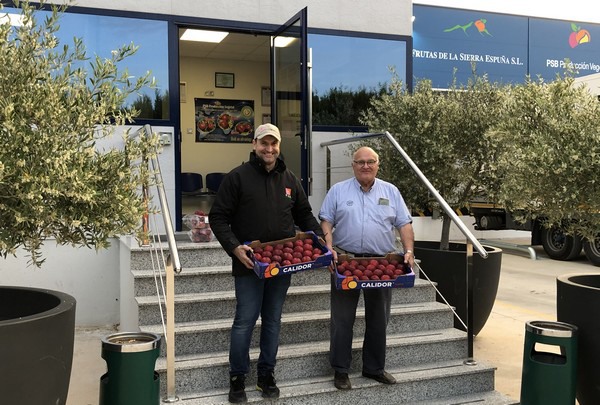
Stéphane and Philippe Buffat, founder and CEO of PSB, presenting the nectarine variety Copacabana in early May 2020 in Murcia.
“Being fruit producers allows us to have a global vision of the market, of the specifications of the final consumers, of the complexity and the problems arising in the production, as well as of the most relevant quality requirements that the fruit must meet during the packing process. All this information allows our group of collaborators to make a better selection and supply the stone fruit that consumers, producers and exporters demand. We therefore obtain a product adapted to the needs of the present and, above all, of the future of food chains,” says PSB manager Stephane Buffat.
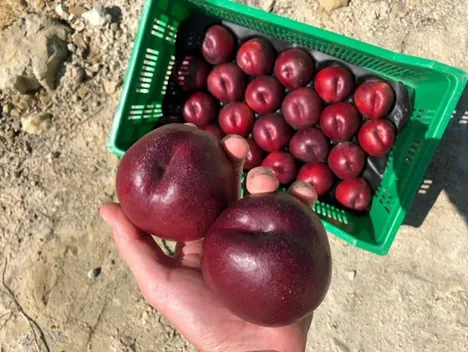
Nectarine variety Copacabana.
The company has recently launched various ranges of stone fruits. “Initially, we focus on the taste and organoleptic qualities of the fruit. That is to say, we seek for the fruit to have the aroma and the sugar content that consumers want, taking into account the great competition that exists between stone fruit and the fruits that are available all year round, such as tropical fruit, table grapes, berries, etc. Stone fruit must have an outstanding taste in order to promote its consumption at the start of the campaign for products such as nectarines, peaches, Paraguayo peaches and apricots,” says PSB technical director Thomas Chevallier.
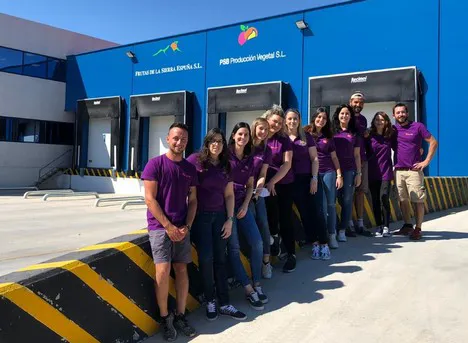 Technical and administrative team together with commercial technical director Thomas Chevallier.
Technical and administrative team together with commercial technical director Thomas Chevallier.
The second point that PSB takes into account when breeding varieties is disease tolerance. “For us, it is important to obtain healthier stone fruit for the final consumer. For example, we already have some nectarine varieties with resistance to fruit monilia, which allows arboriculturists not to treat these varieties with fungicides and, therefore, to have fruits with very little or practically no phytosanitary residues. This also entails a significant reduction in the production costs. We are involved in another very important line of research, looking into the tolerance of apricots to sharka. This disease greatly affects the quality of the fruit and can prevent the continuity of apricot production in some highly affected areas. We have a full range of sharka-tolerant apricot trees from early May to late August,” says Vincenzo Cerbone, from the technical department. All these varieties have a very important point in common: they are self-fertile, which results in a safer production.
These are PSB's full ranges of Paraguayo peaches, flat nectarines and apricots:
Paraguayo peaches with pistillary closure and flavor
PSB is working on research lines on Paraguayo peaches with almost total pistillary closure and on flat nectarines. "It is a project that has been carried out for 10 years and that is starting to yield results after a thorough selection process with molecular markers and a long period of research and selection," says Chevallier.
The company already has a full range of white-fleshed Paraguayo peaches with almost 100% pistillary closure and near perfect productivity and flavor:
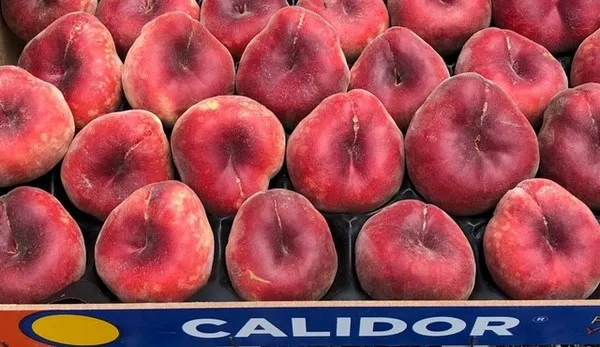 Zodiac Paraguayo peach.
Zodiac Paraguayo peach.
- Zodiac: early Paraguayo peach that overlaps with the UFO R2 early in the season.
- 5706-75: variety that overlaps with the UFO R3, with great yield and almost 100% pistillary closure.
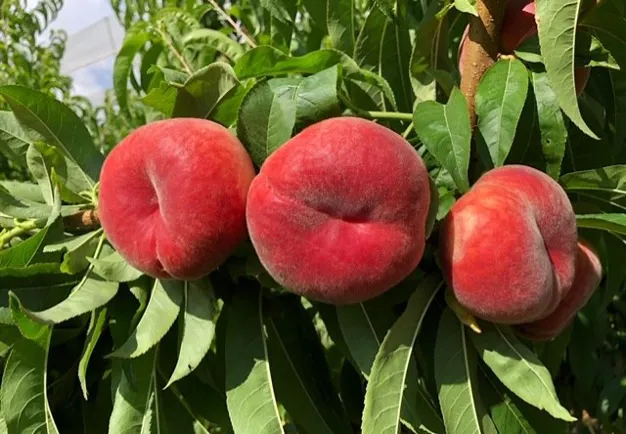
5706-75 variety.
- Contessa: Paraguayo peach that arrives after the UFO4. A very tasty variety.
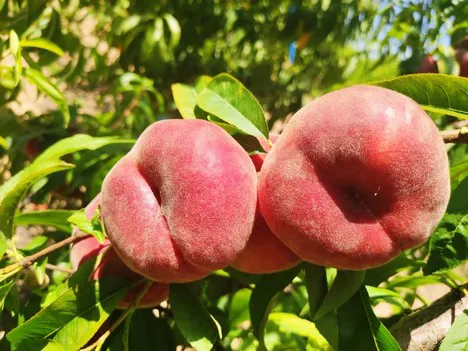
Babylone Paraguayo peach.
- Babylone: it arrives at the same time as the Galaxy, with good productive potential, impressive calibers and almost 100% pistillary closure.
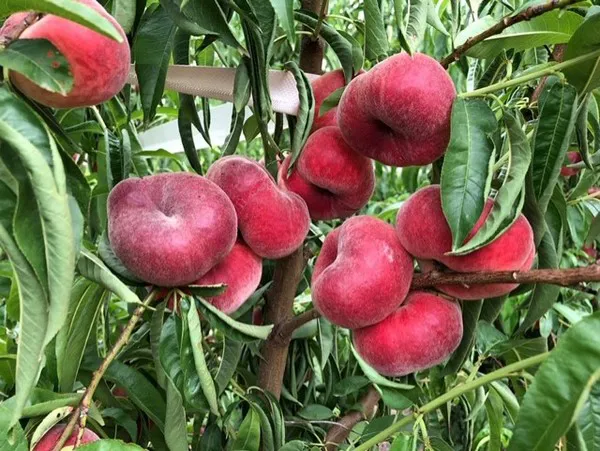
Filoe variety.
- Filoe: with the same schedule +4 days as the Sweetcap, with great productive potential and outstanding pistillary closure.
Range of tasty, sharka-resistant and self-fertile apricots:
- Néstor: Harvested early in the season, at the same time as the Colorado.
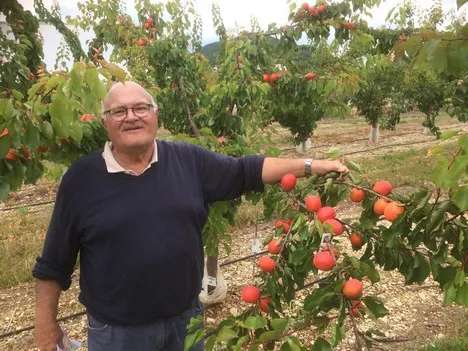
Philippe Buffat, presenting the Nestor variety.
Nestor.
- Domino: 8 days before the Flopria.
- Flopria: Harvested in late May and early June.
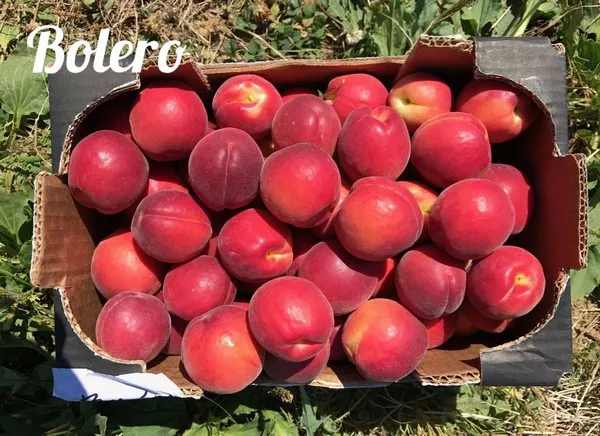
- Bolero: Of the Red Premium range. It is a 100% red sweet that is harvested in mid and late June.
- Nelson: Harvested in mid-July, very sweet and with a spectacular caliber.
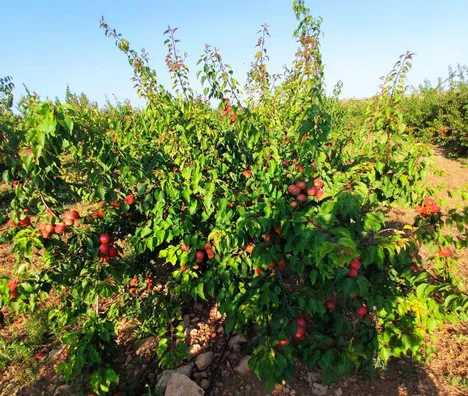
Nelson variety.
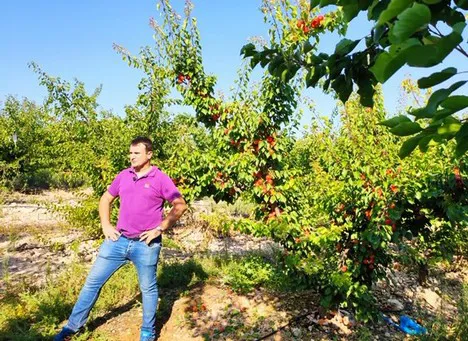
- Madrigal. Harvested in late July and early August. This is a flagship apricot thanks to its taste and firmness.
- Agostino. Harvested from mid to late August. It has a phenomenal taste and a very attractive color when it's ready to be picked.
Range of flat nectarines.
PSB's flat nectarine range features totally innovative fruit with a focus on taste and firmness.
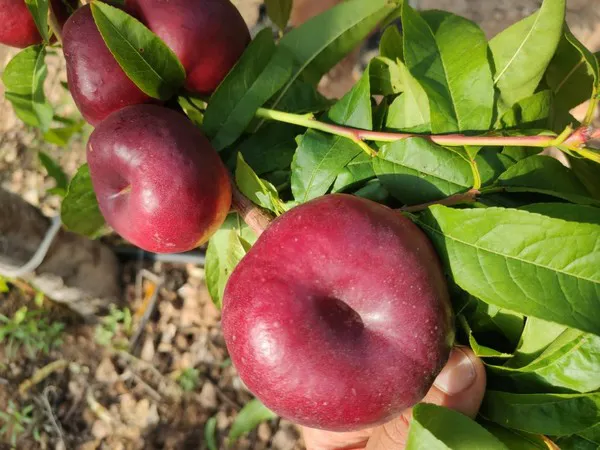
5544-58 flat nectarine.
The first of the flat nectarine varieties is the 5544-58, which is white-fleshed and is harvested in early May. It has a very good pistillary closure and good flavor.
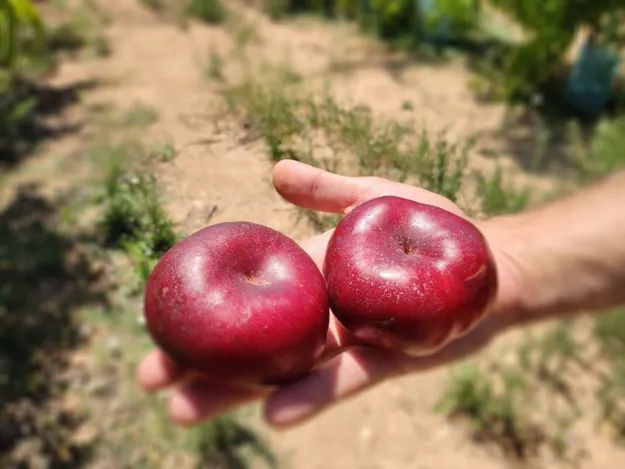
*AC497-14: yellow-fleshed, harvested in late June and with a spectacular pistillary closure.
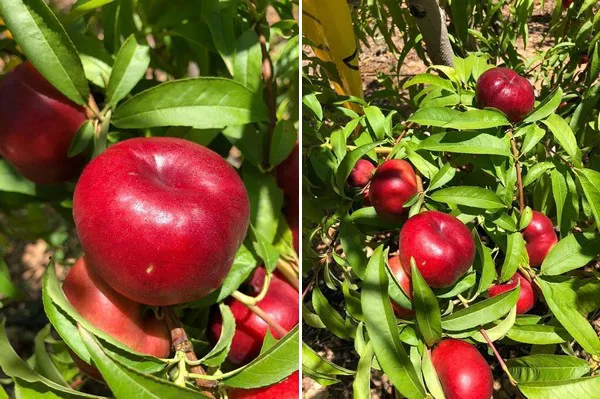 AC459-25 flat nectarine.
AC459-25 flat nectarine.
*AC459-25: white-fleshed, harvested at the same time as the Garcica.
* BP171-5: yellow-fleshed and harvested in August.
*BP171-22: white-fleshed and harvested in mid-August.
*BP170-34: white-fleshed and harvested in early August.
PCN239-49 NPB: Subacid variety with a perfect closure. It is ripe in mid-July. Highly productive, despite the frosts in March (in France). Photo below.
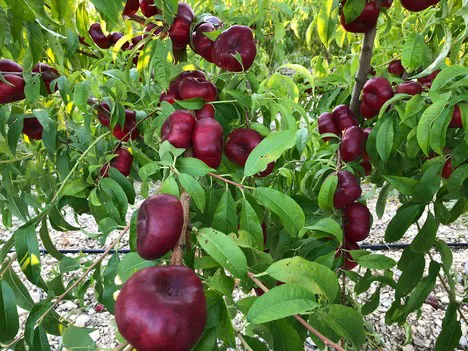
"PSB will gradually extend its flat nectarine season in the coming years with the same selection criteria: taste, attractive appearance with good pistillary closure, productivity, firmness and good post-harvest," says Thomas Chevallier.
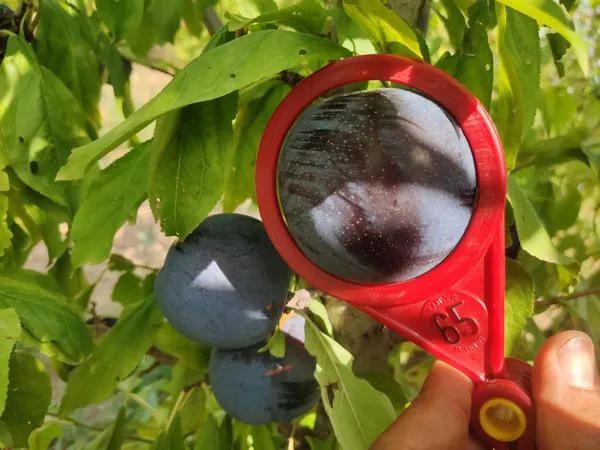
CR9-7 sweet plum of the extra-early range.
PSB is working and conducting research on new products, such as cherries, plums, cherryplums and other fruits. "The passion for varietal innovation is what drives us. Very soon, we will launch a range of Lowchilling plums with very little need for cold. We are working hard to replace the old plum varieties from the months of July and, especially, August,” says Stephane Buffat.
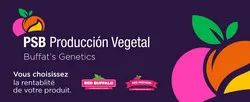 For more information:
For more information:
Thomas Chevaillier
PSB Producción Vegetal
Technical-Commercial Director
T: +34 620 810 125
thomas@psbproduccionvegetal.com
www.psbproduccionvegetal.com
